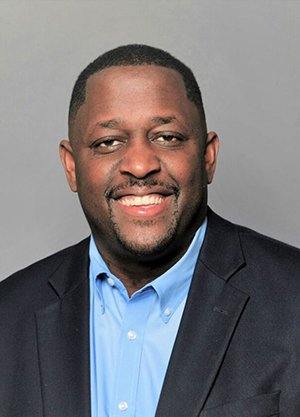

Big Interview: Mission Possible
Since 2013, the RCGP Myanmar Volunteers have been working in partnership with the country's medical association to provide training and support to Myanmar's general practitioners
The group's efforts to support the development of general practice in Myanmar through quality improvement training workshops, knowledge webinars and remote training, have run alongside a highly tumultuous period for the country and its health system.
There has been significant pressure on healthcare in Myanmar from both the Covid pandemic and from years of political turmoil, culminating in the attempted military coup of 2021.
The anniversary of the coup was marked this week by health organisations across the UK, including the RCGP, with a light display showing solidarity for the health workers working in the region.

Political instability has contributed towards a fragile health system. Under successive military governments, health care has not been given the priority it deserved.
Prior to 2012, the public share of health spending was at 1% of GDP which amounted to about $1 per person. While this saw improvements with the health budget increasing to 8% of government spending by 2018, the country still faces longstanding problems.
In 2000, the WHO ranked Myanmar second last out of 191 countries surveyed for 'overall health system performance', at which time, the child mortality rate for the country was one of the highest in Southeast Asia at 65 per 1,000 born.
According to the latest Humanitarian Needs Overview of 2023, 10 million people need health assistance in Myanmar, 52% of them women and girls, and 32% children aged under 18 years old.
Treatments for life-threatening conditions, including malaria, tuberculosis and HIV, are becoming harder to access for many as the limited supply of medication is raising the price far beyond the reach of most people.
In some instances, qualified doctors have been banned from practicing medicine.
Despite these challenges, international healthcare schemes like the Tropical Health and Education Trust and the UK's Health Partnership have been working with Royal Colleges and other organisations to ensure access to healthcare, as a basic human right, is maintained in Myanmar.
Although the coup greatly impacted the in-person training of Myanmar GPs and strategic collaboration with medical associations provided by the RCGP Myanmar Volunteers, they continue to provide twice monthly knowledge webinars and monthly remote quality improvement workshops.
A GP education website is being developed for Myanmar's GPs so they can access educational resources and guidelines provided by UK health organisations. Funding for medication, especially for chronic disease management, has also been provided for Myanmar GPs so that they can deliver care free of charge to their most vulnerable patients.
Dr Sonny Aung, a leading member of the volunteer group said: “Our work in Myanmar has been fraught with difficulties over the past few years. The pandemic prevented in-person training and, just as the rest of the world returned to normal, the coup ushered in a new range of devastating problems.
“Despite this, we continue to support the development of primary care in Myanmar. We're expanding our operations and looking for new volunteers to assist in our programmes.
“As we grow our numbers, we'll be able to expand our training programmes, working with the medical association and local communities to improve the country's health outcomes.”
Another leading member of the group, Dr Peter Saunders said: “The past two years for Myanmar have been defined by mass disruption, worsening living conditions and persistent fighting. Our voluntary initiatives though are a means to make a positive difference.
Now more than ever, we need to show solidarity and support for our colleagues, demonstrating that the international medical community is still willing to help.
“As we look to the future, we'll be recruiting more GPs keen to share their expertise with their colleagues in Myanmar. For our volunteers, the next few years will certainly be filled with incredible experiences.”
Dr Sonny Aung added: “By continuing to communicate with us, GPs in Myanmar know that they are putting themselves at risk, but their hope and determination for a better future, which they glimpsed over the few years before the coup, is greater than their fear.
“We in the RCGP and the UK medical community want to do everything we can to show solidarity and will continue to find ways to support our Myanmar GP colleagues and their patients in these difficult and dangerous times.”
Thank you for your feedback. Your response will help improve this page.